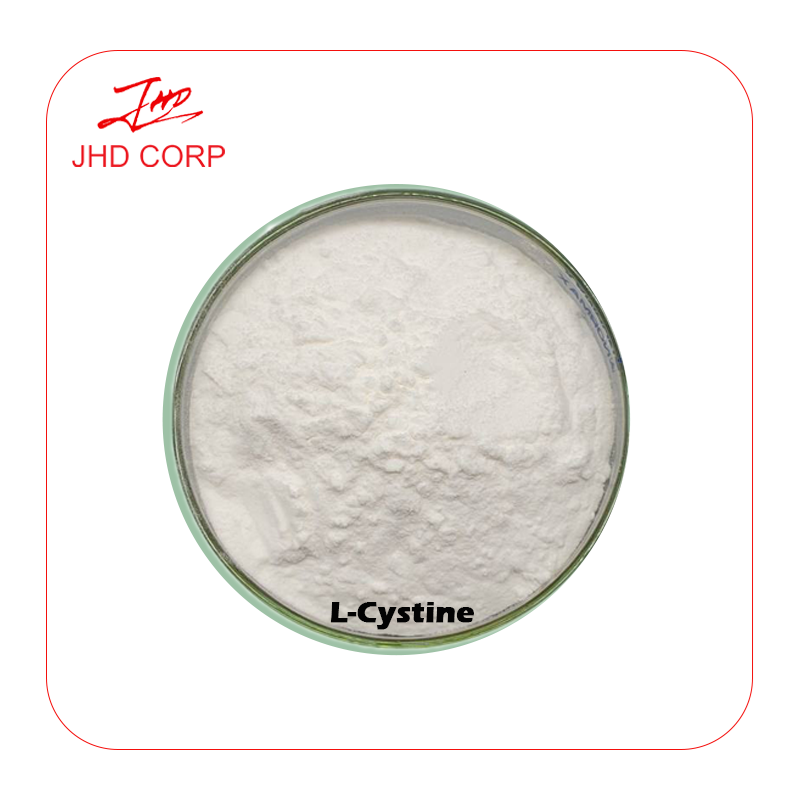Welcome to JHD Nutrasource!
Shop
L-Cystine
L-Cystine is a white crystalline powder, a dimer formed by the oxidation of two L-cysteine molecules through a disulfide bond. It is an amino acid that plays important roles in protein structure, antioxidant defense, and sulfur metabolism. L-Cystine is less soluble in water compared to L-cysteine but is more stable under oxidizing conditions.
Description
| Product Name | L-Cystine |
| Appearance | White Powder |
| Specification | 99% |
| Test Method | HPLC |
| CAS No | 56-89-3 |
| MF | C6H12N2O4S2 |
| Certificate | KOSHER/HALAL/ISO/CGMP/USDAORGANIC |
Functions
- Protein structure stabilization: In proteins, L-Cystine forms disulfide bridges between cysteine residues, which are crucial for maintaining the three-dimensional structure of proteins. These disulfide bonds provide stability, rigidity, and proper folding of proteins, ensuring their correct function. Proteins such as enzymes, antibodies, and structural proteins rely on disulfide bonds formed by L-Cystine for their activity and integrity.
- Antioxidant function: L-Cystine can be reduced to L-cysteine, which is a precursor for the synthesis of glutathione (GSH), the body’s primary intracellular antioxidant. GSH plays a vital role in neutralizing free radicals, detoxifying harmful substances, and maintaining cellular redox balance. By contributing to GSH synthesis, L-Cystine indirectly supports the body’s antioxidant defenses, protecting cells from oxidative stress and damage.
- Sulfur metabolism: As a sulfur-containing amino acid, L-Cystine is involved in sulfur metabolism, providing a source of sulfur for the synthesis of various sulfur-containing biomolecules, such as coenzyme A, taurine, and chondroitin sulfate. These molecules are essential for processes like energy metabolism, bile acid conjugation, and cartilage formation, respectively.
Applications
- Dietary supplements: L-Cystine is used in dietary supplements, often in combination with other antioxidants and nutrients. It is marketed to support overall health, immune function, and skin health, as its role in GSH synthesis helps protect cells from damage and promotes healthy skin by reducing oxidative stress and supporting collagen synthesis.
- Pharmaceutical industry: In pharmaceuticals, L-Cystine can be used as an ingredient in medications for treating certain metabolic disorders related to sulfur metabolism or antioxidant deficiencies. It may also be included in topical formulations for skin conditions, leveraging its role in promoting skin repair and reducing oxidative damage.
- Biotechnology and research: L-Cystine is used in cell culture media to support the growth and survival of cells, especially those that require sulfur-containing amino acids for proper metabolism and protein synthesis. It is also a valuable tool in research for studying protein structure, folding, and the role of disulfide bonds in biological processes.

